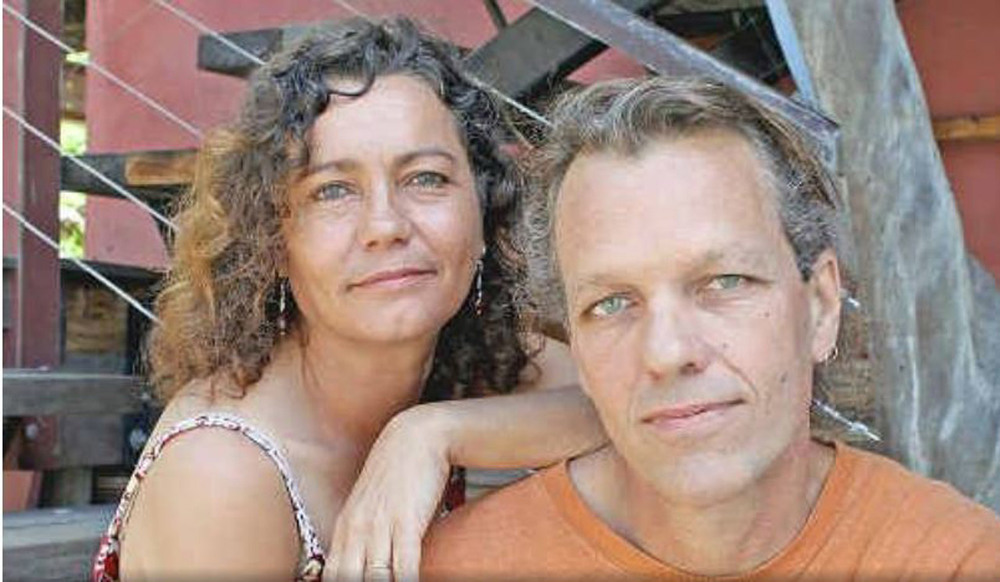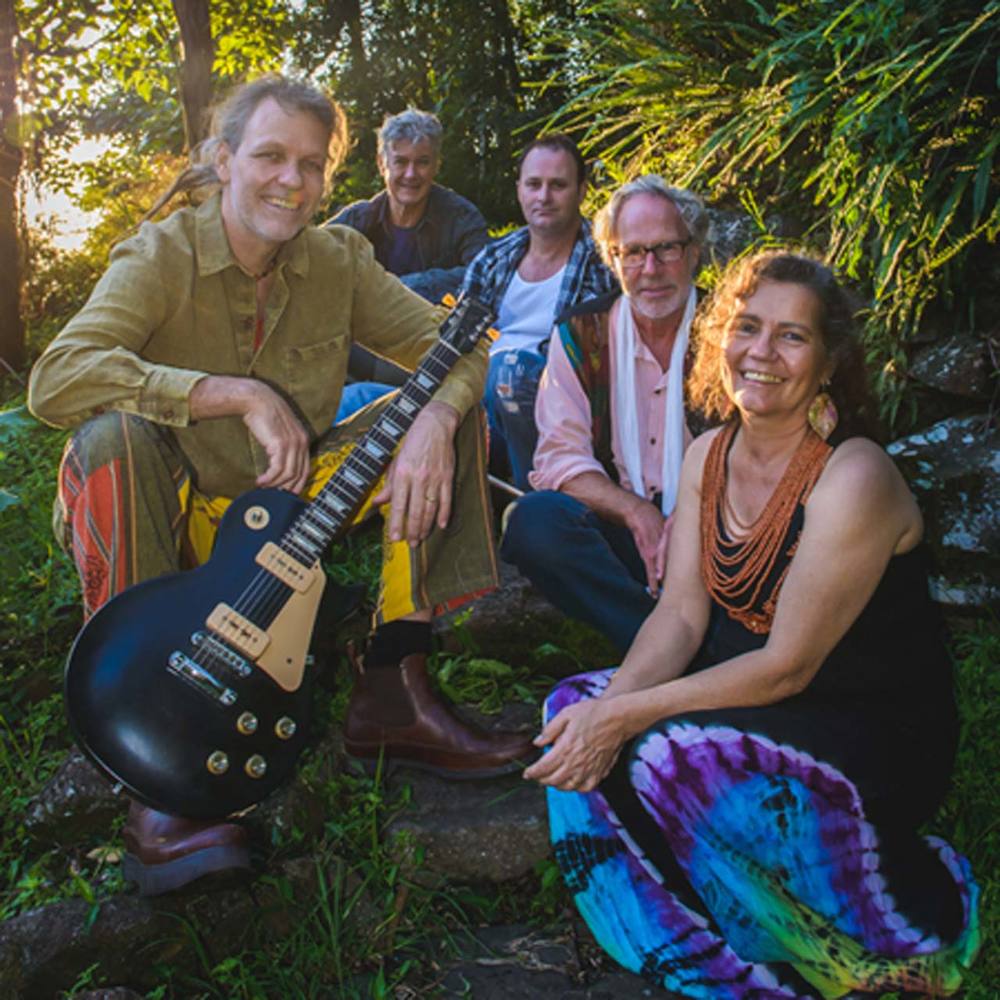SUNDAY PROFILE: Aboriginal lecturer and musician Marcelle Townsend Cross
Liina Flynn
04 January 2020, 8:00 PM

University lecturer and musician Marcelle Townsend Cross didn’t find out she was an Aboriginal woman until she was 18 years old.
Growing up with her adopted parents, she’d always suspected there was more to her ancestry than she was told.
Now, as a university lecturer in Southern Cross University’s School of Arts and Social Sciences, Marcelle is changing the way the education system teaches people to think about Indigenous peoples and culture and says we need to “rehumanise our society”.
“I was brought up as a white fella and was ignorant about the real history of Aboriginal people,” Marcelle said.
“I knew from my experience at school what white Australians learn from the education system and its racism - and I know about the process of unlearning that.
“It’s a really emotional journey – with anger, fear, bitterness and joy.”
Beginnings
Marcelle was born in Crown Street Hospital in Sydney in 1962. She lived with her mother, father and siblings until her mother left her father when she was eight months old.
“She left him in middle of the night and took me only because I was the only child that wasn’t his,” she said.
Marcelle lived with her mother until her mother’s alcoholism became a problem and government welfare staff came and took her away.
Despite her grandmother’s efforts to keep Marcelle in the family, Marcelle was adopted in February, 1963, when she was 14 months old.
Her adoptive parents, Betty and Jack Cross took her to live with them in Newcastle.
“It was a closed adoption,” Marcelle said.
“Welfare has loosened up now – but the Stolen Generations practices continued until the late ‘60s.
“Mum and dad knew I was from and Aboriginal family, but they made the decision to not tell me about it.
“I realised I was probably Aboriginal from looking in the mirror as I was growing up. Eventually, I wrote a song about it called ‘Koori in the Mirror’.
“I used to ask if I was Aboriginal, and my parents said I was special because I was adopted.”
Childhood
Despite not knowing her roots, Marcelle said she had a happy, safe childhood and loved her mum, step-dad and brothers.
“Mum wanted to call me Jennifer, but when she got me, she decided to keep Marcelle, which was fortunate because it helped me later when I went to find my family.”
The catalyst for looking for her family came when she was 16 and her dad went missing in a fishing accident at Catherine Hill Bay.
“His body was never found – we saw on news footage that a man had gone missing and showed dad’s truck – and mum freaked,” Marcelle said.
“It was the first significant death in my life and made me interested in finding out about my natural family.
“Mum was racist and felt threatened by it - but she got over it when I wasn’t going to run away with an Aborigine.
“I asked mum for my adoption papers, but she refused, and I only found them when she died.
“I was adopted through the Catholic adoption agency but couldn’t access the information until I was 18.”
Reconnecting
With the help of an adoption reconnecting organisation, Marcelle began searching for her birth family.
“I got a call a week later that my birth mother was also looking for me and three weeks later, we met at a mediator’s house,” she said.
“It was amazing – I did look like her. It confirmed I was from an Aboriginal family. It made instinctive sense.
“People used to comment that I looked like dad - he was Aboriginal too from the Gunnedah Roses mob.”
Intergenerational trauma
“I met my nan, my uncles, brothers and sisters - It was a difficult trip coming back into a family affected by intergenerational trauma.
“I went through the mainstream racist education system in the ‘70s crap and was taught crap about Aboriginal and Torres Strait Islander people.
“I didn’t know what to expect.
“It can be difficult managing relationships in immediate and extended family because of lateral violence, bitterness, conflict and mental health issues.
“The next ten years as I got involved in my family, I learned to navigate that stuff – including my crazy sister - then everyone started to die.
“Mum had aggressive liver cancer and we went back on country together in Taree for Christmas.
“My eldest sister struggled with heroin, then got aggressive kidney cancer and she asked me to care for her two youngest daughters, which I did with my husband Chris.”
Marcelle had already married and had three children, but when that relationship ended, her nan’s words ‘watch out who you marry – you are related to everyone in Redfern, Taree and Karua’ had special importance.
“So, I played it safe and married the son of boat people from England - Chris Fisher.”

Marcelle and Chris.
Northern Rivers
Marcelle came to live in the Northern Rivers in 1986 to study at the Northern Rivers College of Advanced Education.
“After 11 years of raising kids, I started studying an associate degree in music to get into swing of study,” Marcelle said.
“I’d been playing guitar and singing, and I loved music.”
Her love affair with music was the also beginning of a beautiful relationship with local musician Chris Fisher.
“We met over shitty nappies at a day care centre,” Marcelle said. “Chris had boys and as we changed nappies, we eyed each other off.
“He asked me on a play date with the kids, but we were both in relationships at the time.
Rockonciliation
“Five years later, I was single and working at GNIBI in admin and making music with a band called Rockonciliation.
“We sang black fella songs and I was trying to get an understanding of my family. Why are they poor, angry and sick – what’s wrong?
“I asked my nan, but she was a closed trap and too traumatised to talk about it.
“My cousin Jo told me to do Indigenous studies, so I went to the Southern Cross University Indigenous College.
“I learned and then I got pissed off. It helped me to understand why my family was scattered, drunk and blocked up.
“It lit a social justice fire in my belly - I was angry and realised I’d been a part of it all.
“So, I expressed that through music – and that’s when Chris Fisher asked me to emcee at a community event at Nimbin Rocks.”
Love story
“Chris showed up as a gorgeous guy on doorstep with a white shirt and flowers.
“He realised I was single and we got to know each other. We became a love story and eventually married.
“He had two boys, I had three kids and all our kids had been together since preschool.
“We moved into Harmony Avenue in Lismore together – but some days it was Discord Close – we had two families and kids and significant other parents – and we all raised them.”
When Marcelle’s sister’s two children came to live with them, five children grew to seven.
“And after mum died, my little brother came to live with us too,” Marcelle said.
Eventually, they would also take on another baby from one of Marcelle’s siblings.

Marcelle with Chris Fisher and other musicians performing as Monkey and the Fish.
University
“In the late 90s Aboriginal employment programs were all the rage,” Marcelle said.
“I knew that education is the solution, regardless of the question.
“A job came up as an assistant lecturer and I always to be a teacher of adults - I had enough kids at home.
“When I got the job, I was given a three-page course outline and told good luck.
“I taught a course in Aboriginal history and arts and was teaching when Chris and I married.
“We also produced an album of music together as ‘Monkey and the Fish’ and bought a block of land and started to build a house.
“That was 15 years ago – and the house is still not finished.”
Career
Marcelle’s career took her to work in different universities as she raised a big family and continued playing music with Chris in local venues as Monkey and the Fish.
Eventually, when most of the kids had moved out, Marcelle decided to go back to study and do her PhD.
“I got a scholarship to do a masters in adult education and Indigenous studies at the University of Technology Sydney in 2009,” Marcelle said.
Teaching and PhD
Over time, Marcelle’s studies and teaching evolved into critical Indigenous studies, which she describes as a study of the relationship between the coloniser and the colonised.
Marcelle took everything she had learned and applied her understanding of teaching and learning strategies to looking at cultural studies in a new way.
“My PhD became a reflection of where we’ve been and should be going,” she said. “It’s a critical anti colonial approach to teaching and learning, with a social justice edge.
“When we used to learn social profiling of Aboriginal people – it was about learning about the other and their problems, and it lets the rest of Australia off the hook with regards to their responsibility.
“It’s still colonialism in action. It’s the same shit that happened to my ancestors and it’s still happening to all of us – and education breaks us free of that.
“My PhD was about the experience non-indigenous students had when they studied indigenous studies.
“Indigenous studies confronts white people for the first time with stuff that goes to core of who they are as Australians – it’s an emotional roller coaster ride as much as intellectual journey.
“Humans who have been fed crap all their lives can now hear a different perspective - and it rocks their world.
“So, we need compassion in order to make Indigenous studies more acceptable to all students - and to understand it’s a big upset to their identity.
“Any situation where a human is oppressed diminished us all.
“Racism and oppression dehumanises the racist and oppressor, as much as it harms the victim - the target.
“So, we need to adopt critical cultural safety and interrogate the dominant and mainstream society in which we are all immersed.
“We need to self-reflect and examine how our investment in that environment and common knowledge impacts on our interactions and relationships with minoritised others.
“For men, it’s how they interact with women with regard to patriachy.
“For the Australian born, it’s how they interact with immigrants.
Cultural safety
“The process of cultural safety is about learning that something that’s ok for one person, might not be ok for another. It requires cultural humility and we are always learning.
“As a non-immigrant, I can never be fully aware of what life is like for an asylum seeker or what’s best for them.
“What does our treatment asylum seekers say about our humanness?
“We need to rehumanise our society because it is moving toward to anti intellectualism and right wing nationalism.
“Our Ancestors teach us to care, share and respect – rather than saying racist bastards.
“I want all Indigenous studies to go that way.
“My next research project will look at what’s being taught across Australia in Indigenous studies.”